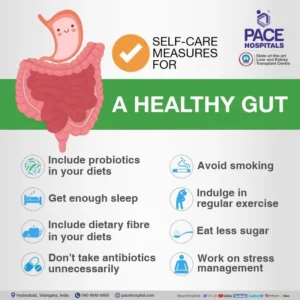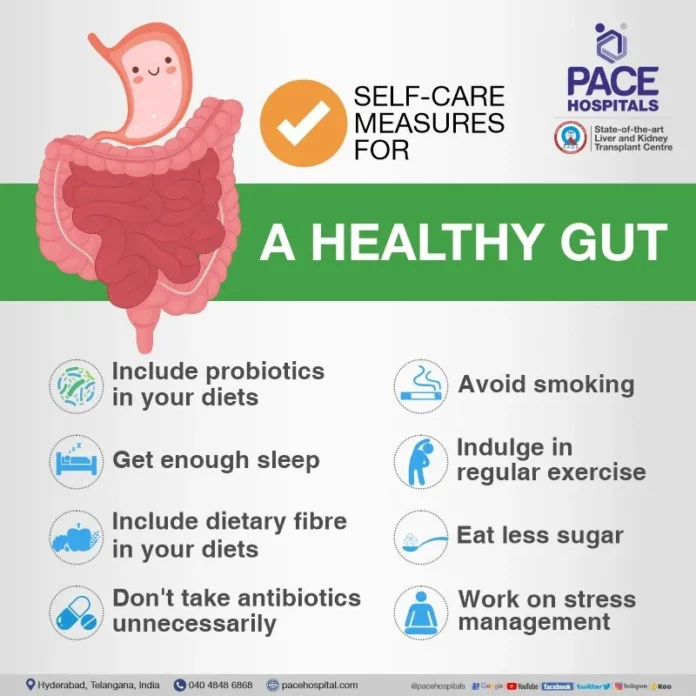
Maintaining a healthy gut is crucial for overall well-being. The gut, often referred to as the “second brain,” plays a vital role in digestion, nutrient absorption, and immune function. Incorporating simple daily habits can significantly improve your gut health. Here are some effective tips to get you started.
1. Eat a Diverse Range of Foods
A diverse diet leads to a diverse microbiome, which is beneficial for your gut health. Aim to include a variety of foods, especially fruits, vegetables, whole grains, and legumes, in your diet. These foods are rich in fiber, vitamins, and minerals that nourish your gut bacteria.
2. Include Fermented Foods
Fermented foods like yogurt, kefir, sauerkraut, kimchi, and kombucha are excellent sources of probiotics. Probiotics are beneficial bacteria that help maintain the balance of your gut microbiome. Regular consumption of fermented foods can enhance gut health by increasing the number of beneficial bacteria.
3. Stay Hydrated
Drinking plenty of water is essential for the health of your gut lining and the overall function of the digestive system. Hydration helps with the absorption of nutrients and the elimination of waste, preventing constipation and promoting a healthy gut environment.
4. Limit High-Fat and Sugary Foods
Foods high in fat and sugar can negatively impact your gut health. They can promote the growth of harmful bacteria and reduce the diversity of your microbiome. Try to limit the intake of processed foods, sugary snacks, and fried foods.
5. Eat Prebiotic-Rich Foods
Prebiotics are non-digestible fibers that feed the beneficial bacteria in your gut. Foods rich in prebiotics include garlic, onions, leeks, asparagus, bananas, and whole grains. Incorporating these foods into your diet can help maintain a healthy balance of gut bacteria.
6. Exercise Regularly
Regular physical activity can positively influence your gut microbiome. Exercise increases the diversity of gut bacteria and supports overall digestive health. Aim for at least 30 minutes of moderate exercise, such as walking, cycling, or swimming, most days of the week.
7. Manage Stress
Chronic stress can negatively affect your gut health by disrupting the balance of your gut bacteria. Incorporate stress-management techniques such as mindfulness, meditation, yoga, and deep breathing exercises into your daily routine to help reduce stress levels.
8. Get Enough Sleep
Adequate sleep is essential for maintaining a healthy gut. Poor sleep patterns can negatively impact your gut microbiome and overall health. Aim for 7-9 hours of quality sleep each night to support your gut and overall well-being.
9. Avoid Overuse of Antibiotics
While antibiotics are necessary for treating bacterial infections, overuse can harm your gut microbiome by killing beneficial bacteria. Use antibiotics only when prescribed by a healthcare professional and follow their instructions carefully.
10. Consider a Probiotic Supplement
If you’re unable to get enough probiotics from your diet, consider taking a probiotic supplement. These supplements can help replenish beneficial bacteria in your gut, especially after a course of antibiotics or during periods of high stress.
11. Chew Your Food Thoroughly
Properly chewing your food can aid digestion and promote better nutrient absorption. Chewing thoroughly helps break down food into smaller particles, making it easier for your digestive system to process and extract nutrients.
12. Eat Mindfully
Mindful eating involves paying full attention to the experience of eating and drinking. It encourages you to eat slowly, savor each bite, and listen to your body’s hunger and fullness cues. This practice can improve digestion and prevent overeating.
13. Limit Alcohol Consumption
Excessive alcohol consumption can disrupt the balance of your gut bacteria and damage the gut lining. Limit your intake of alcohol and opt for healthier beverage choices like water, herbal tea, or kombucha.
14. Quit Smoking
Smoking has a detrimental effect on your gut microbiome and overall health. Quitting smoking can lead to significant improvements in your gut health and reduce the risk of various digestive disorders.
Conclusion
Improving your gut health doesn’t require drastic changes. By incorporating these simple daily tips into your lifestyle, you can promote a healthier gut microbiome and enhance your overall well-being. Remember, consistency is key, and small, sustainable changes can make a big difference over time.
By following these guidelines, you can create a gut-friendly environment that supports optimal digestion, nutrient absorption, and immune function. Start today and take the first step towards better gut health and a healthier you.




